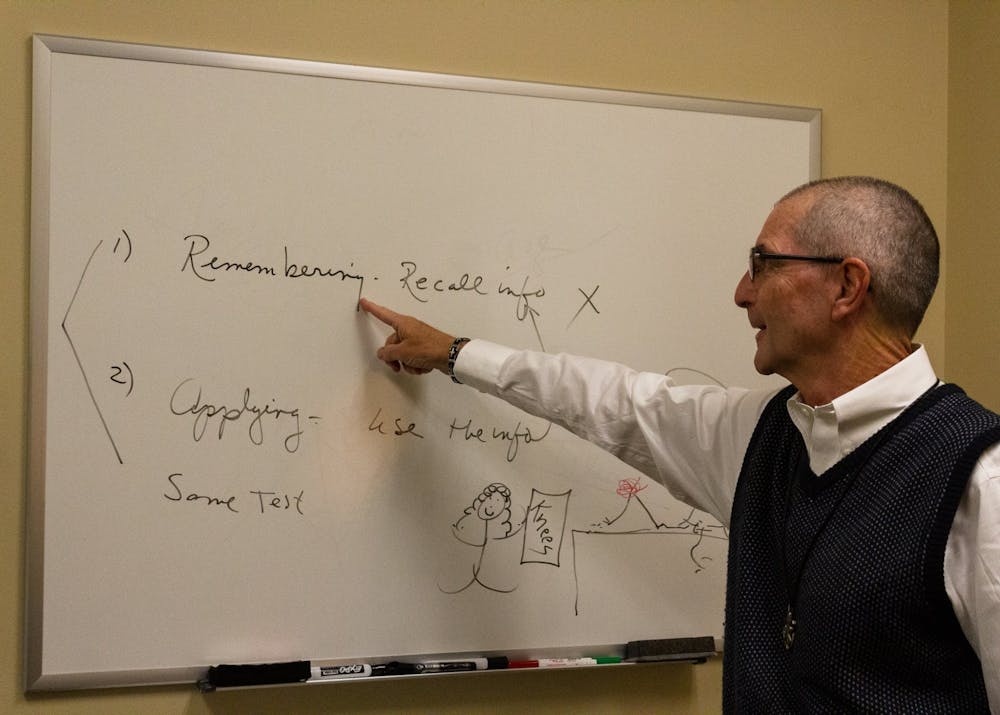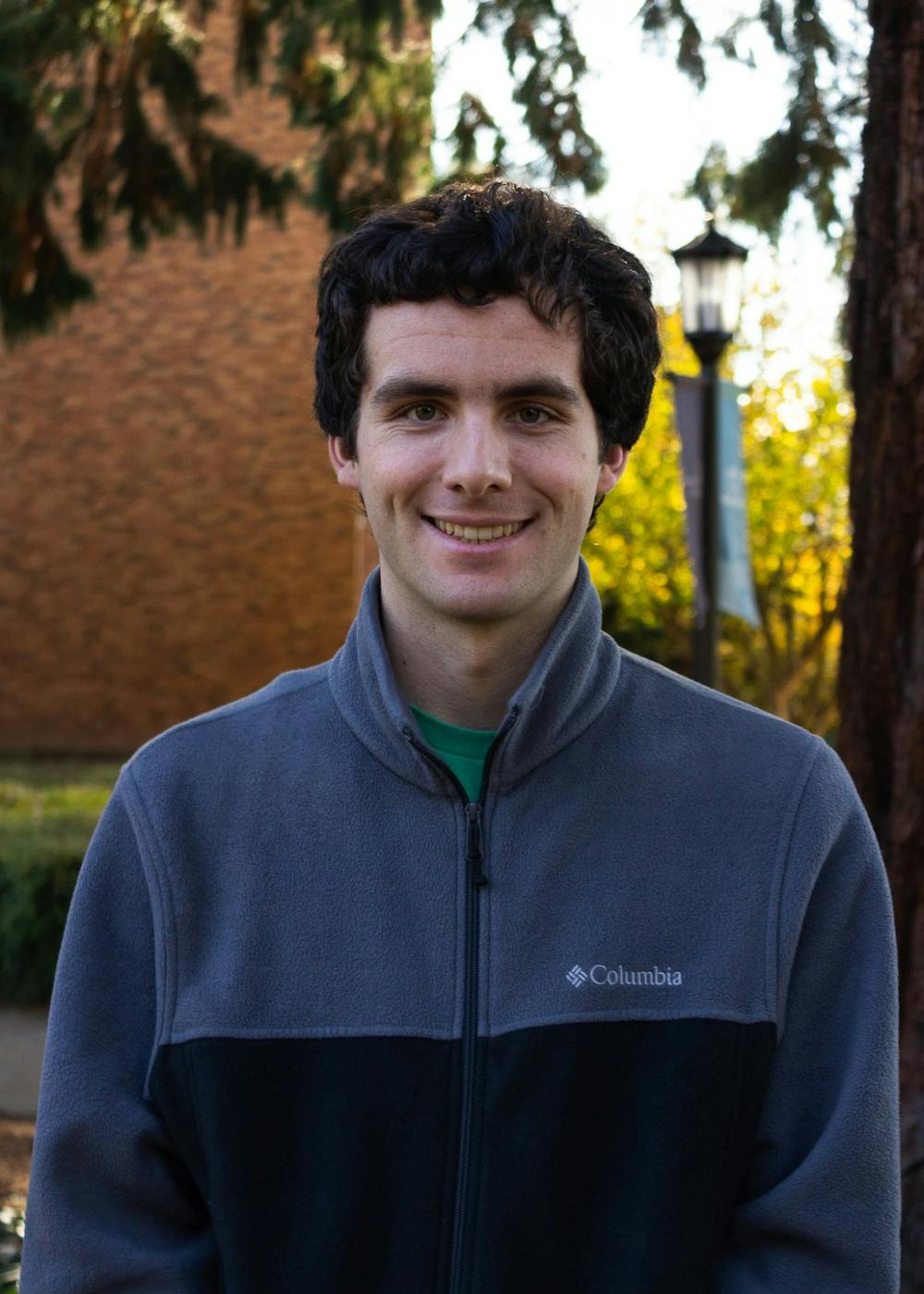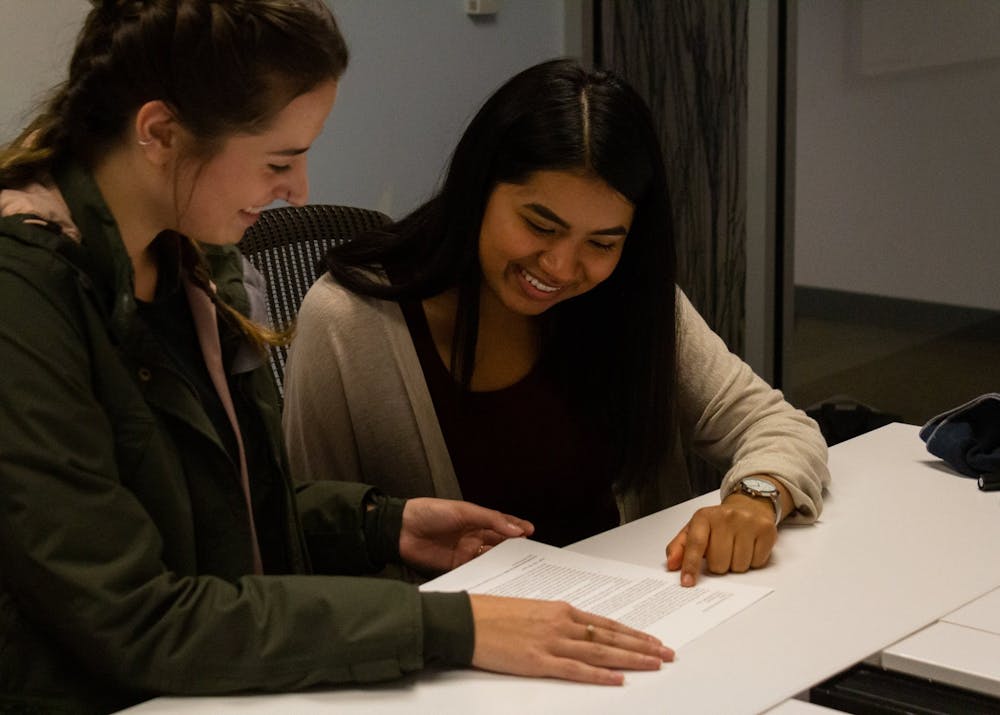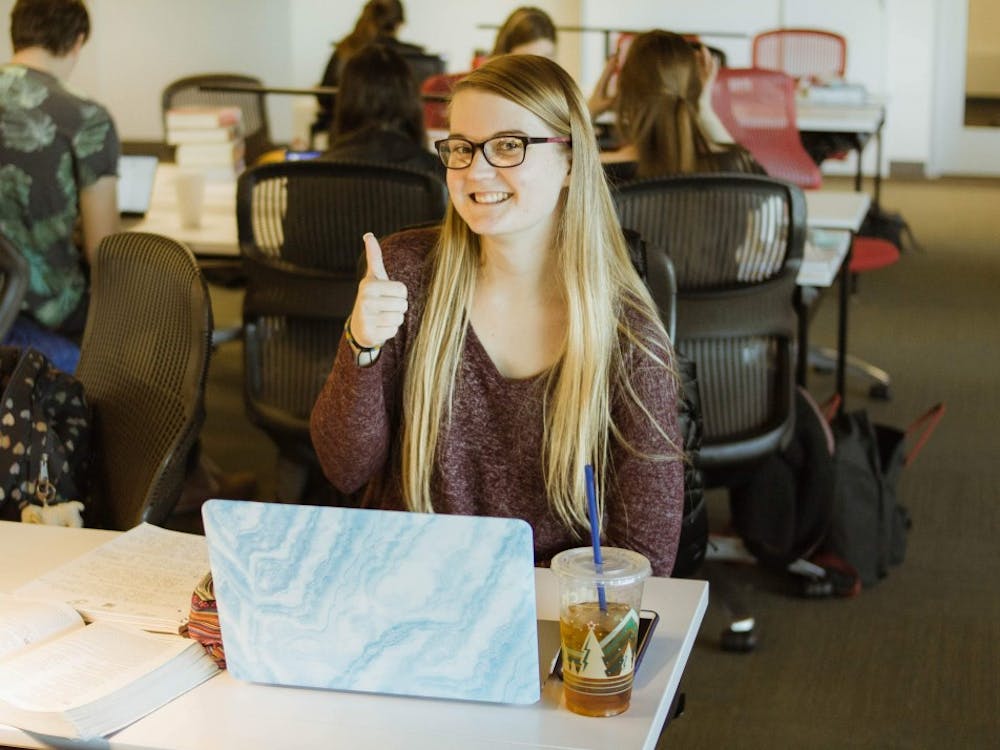As finals week approaches, students may be feeling a little overwhelmed. Piles of homework, essays and projects have started to build and exams loom over students’ heads. For some students, they might not know where or how to start studying.
The Shepard Academic Resource Center (SARC) is an accessible resource to University of Portland students for academic needs beyond the classroom. From the Learning Commons to Learning Assistance Counseling, SARC helps all students from diverse majors in developing learning strategies. They offer counselors, peer tutors, assistants and consultants in a variety of disciplines to help solidify your learning through practice, questions and review.
Ensure you’re prepared for your exams with these helpful study tips, provided by SARC, to help you conquer your final few weeks of the semester.
1. Read your textbooks

Br. Thomas Giumenta, a learning assistance counselor with SARC, explains a strategy for improving memory retention.
Reading textbooks may not be fun, but comprehension is important. Improving how you read your assigned textbooks can help smooth out the studying process and reduce exam anxiety. UP’s learning assistance counselor, Br. Thomas Giumenta implements the SQ3R Method to help students largely improve their reading comprehension. The SQ3R Method is a way to study, understand and remember written information more quickly and effectively.
The first step in the method is to survey.
“Survey the whole chapter first and just get a feel for the text. Put yourself in the chapters mood. Prepare yourself to read, don’t just read,” Giumenta said. “Just skimming a little bit, look at the pictures, look at the large print and just try to get an idea.”
The second step is questioning. Go to the end of the chapter and look at the chapter questions and or summary.
“Take a look at the first question and when you begin to read; read with a purpose. If you read with a purpose your focus is greater. Once your focus is greater you memory improves. If your memory improves your grades usually go up,” Giumenta said.
The last three steps are to read, recite and review. Read the text while keeping the first and second step in mind. It also helps to read actively; writing down important details or definitions. Then, recite the text back to yourself and review what you have learned. By reading deliberately, you’ll remember the content better, ensuring that when finals comes around you'll have a better understanding of the material.
2. Use a planner
We’ve all been here at some point, missing a due date or two for an assignment without notice. That’s why making a habit of creating a daily planner is so useful. Organizational skills are vital for studying and time management for an exam.
Most professors put everything you need to do for the whole semester on their syllabus and on Moodle. If you don’t put these things in your planner, you may not realize how limited your homework time really is. This leads to cramming and all-nighters, which are not conducive to studying.
“Time management means you really make appointments with yourself. You make an appointment with yourself to be in those classes, you make an appointment with yourself for self care and you make an appointment with yourself for studying,” Giumenta said.
3. Use study tools like Quizlet

Sophomore Angelica Garcia is a writing tutor at the Learning Commons.
In terms of memorization, Quizlet allows you create original flashcards or use flashcards already made from different users. It’s an easy way to practice and master what you’re learning. To get the most out of your studying, Quizlet should be used in conjunction with other methods such as writing notes down.
“I like to make myself a little Quizlet sometimes. However, I think it’s important not to do them the night before,” said Angelica Garcia, sophomore writing tutor at the Learning Commons. “Also, I think a good way to test myself for a test is to write everything that I know down. I’ll try to answer as many things on my study guide as I can on a whiteboard. This way you know what you know and what you don't know.”
Flashcards are a useful tool because repeating and reinforcing the information you want to keep in your memory is necessary. According to Memorise, practice is the best way to solidify data. The more you go over what you want to remember, like biology terms or math formulas, the more comfortable you can become with the information and recall it during an exam.
4. Look at your notes right after class
You’ve learned to take notes on the material beforehand and during class, but what about after class? Part of good note-taking also includes revisiting your notes a day or so after class.
“The most important aspect of any method of note-taking is to take a look at what you have down as soon as possible after the lecture,” Giumenta said. “If it’s not understandable a couple hours after a lecture, then it will never be understandable in two weeks.”
If what you have put down in your notes doesn't make sense, compare your notes with a classmate to check your own accuracy and check your notes against a textbook. This way you can fill in any missing details and organize your thoughts. Reviewing notes several weeks after a lecture and expecting to learn from them right before an exam can be overwhelming. By reviewing right after a lecture, you can increase your retention of the material and make studying a smaller obstacle.
“So, it's important that your notes make sense to you right after a lecture, and if they don’t, you have to be painfully honest and say, this doesn’t make sense or I left something out of here that just has to be redone,” Giumenta said.
5. Get plenty of sleep

Junior Ryan Regier is a math tutor for the Learning Commons.
Believe it or not, having a good night's rest is a great study tip. Research from Healthy Sleep shows that sleep helps in two distinct ways. First, being sleep-deprived affects your attention span which affects your ability to focus on studying, and secondly, sleep helps you remember more. If you study new material and then sleep, you remember the information better.
“You can’t think as well when you’re sleep-deprived,” said Ryan Regier, junior math tutor for the Learning Commons. “Information gets committed to memory while you’re sleeping. So sometimes the most effective way to study for a test tomorrow is to stop studying and sleep. That way you can actually remember the things you were studying for the night before.”
6. Write notes using paper
Going old school and writing your notes using a pen and notebook is more beneficial for you than typing your notes. Writing your notes down can help you increase focus during class, understand and process the information more, and improve your memory retention.
Using your laptop to take notes can also increase your risk of taking verbatim notes: typing down everything the instructor says word for word. The notes are often hard to understand and are usually incomplete. Studies show that students are able to recall their notes more efficiently when writing them down.
“When you take notes on a laptop, you can take the notes verbatim,” Regier said. “And when you don't process what the teacher is saying, when you just type it out verbatim, you don't remember it as well. It doesn't connect with you very much.”
7. Academic Toolkit
The University of Portland has an array of resources open to every student and applicable to every major. Academic Toolkit offers help with your writing, time management, test-taking, note-taking, reading, study habits, learning and memory, goal setting and motivation skills.
These resources are free to all students Monday through Friday. Use these tips to help conquer your final few weeks of school.
Tessa Rodgers is a reporter for The Beacon. She can be reached at rodgerst21@up.edu.








